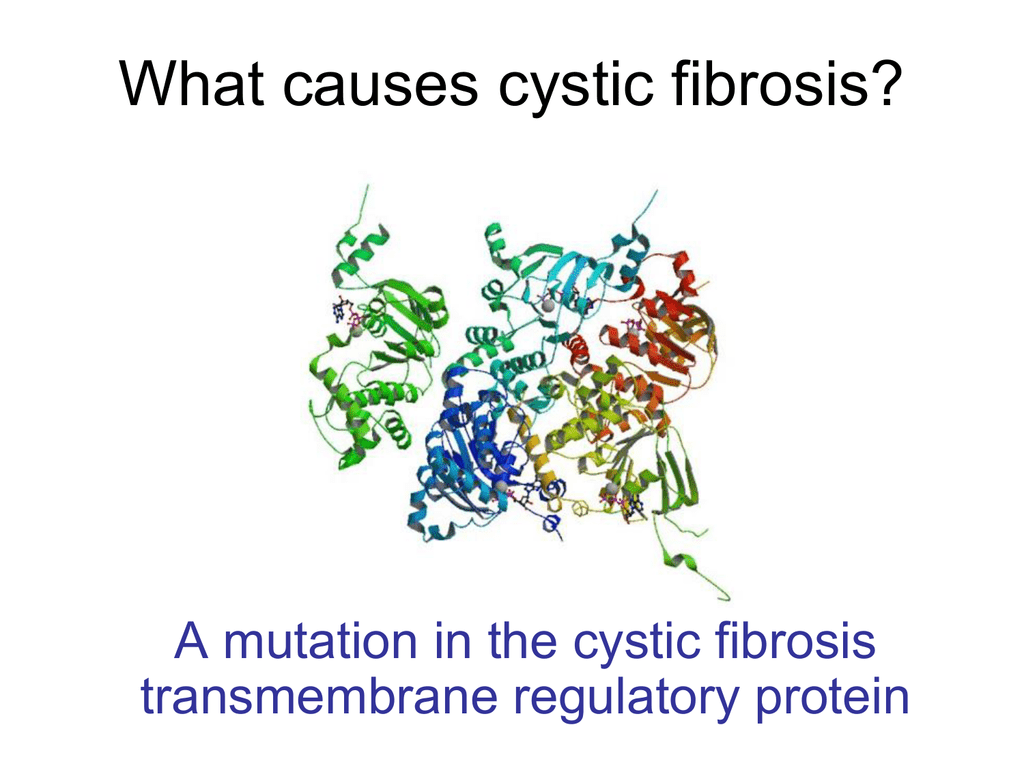What Causes Cystic Fibrosis Mutation
Cystic Fibrosis is a genetic disorder that affects the body's ability to produce fluid secretions, particularly in the lungs. It is a result of mutations in the cystic fibrosis transmembrane conductance regulator (CFTR) gene. The mutations result in the production of a defective protein that affects the normal functioning of the body's salt and water balance. The accumulation of thick, sticky mucus in the lungs and other organs leads to severe respiratory symptoms, digestive problems, and other complications.
Cystic Fibrosis Genetics

The CFTR gene is located on chromosome 7 and is responsible for the production of the CFTR protein. This protein is involved in the transport of salt and water across cell membranes. It helps maintain the normal balance of fluids in the body's organs, including the lungs and digestive system.
The CFTR gene mutations that cause cystic fibrosis can affect any of the three main functions of the CFTR protein:
- Regulation of chloride ions
- Regulation of sodium ions
- Transport of bicarbonate ions
The most common mutation associated with cystic fibrosis is the deletion of three nucleotides in the CFTR gene. This mutation alters the amino acid sequence of the CFTR protein and can result in its degradation, leading to a reduction in its chloride channel function.
Causes of Cystic Fibrosis
Cystic Fibrosis is caused by mutations in the CFTR gene. It is an inherited disorder, meaning that it is passed down from parents to their children. A person with one copy of the CFTR mutation is a carrier and will not develop the disease. However, if both parents are carriers, there is a chance that their child will inherit two copies of the mutation and develop cystic fibrosis.
There are over 1,700 different mutations in the CFTR gene that have been identified as causing cystic fibrosis. The types and severity of symptoms can vary depending on the particular mutation. Some mutations result in milder symptoms while others can lead to life-threatening complications.
Other risk factors for developing cystic fibrosis include a family history of the disease, being of European descent, and having a partner or spouse who is a carrier of the CFTR mutation.
Symptoms of Cystic Fibrosis
The symptoms of cystic fibrosis can vary in severity depending on the type of mutation and the age at which symptoms appear. Common symptoms of cystic fibrosis include:
- Chronic coughing with thick mucus
- Frequent lung infections
- Shortness of breath
- Poor growth and weight gain (in children)
- Foul-smelling, greasy stools
- Abdominal pain and bloating
- Male infertility
Without proper treatment, cystic fibrosis can lead to serious complications such as lung damage, respiratory failure, and digestive problems.
Treatment for Cystic Fibrosis
There is currently no cure for cystic fibrosis. However, there are treatments available that can help manage symptoms and improve quality of life. Treatment options include:
- Airway clearance techniques to help clear mucus from the lungs
- Inhaled medication to reduce inflammation and improve breathing
- Oral pancreatic enzyme supplements to aid in digestion
- Nutritional support to ensure adequate caloric intake
- Lung transplant in severe cases
New research is being conducted to develop more effective treatments for cystic fibrosis. Gene therapy, targeted drug therapy, and stem cell therapy are among the areas of focus for researchers.
Conclusion
Cystic Fibrosis is a genetic disorder that affects the body's ability to produce fluid secretions, particularly in the lungs. It is caused by mutations in the CFTR gene and can lead to severe respiratory symptoms, digestive problems, and other complications. While there is currently no cure for the disease, treatments are available to help manage symptoms and improve quality of life. With ongoing research and advancements in treatment options, there is hope for a future cure for cystic fibrosis.